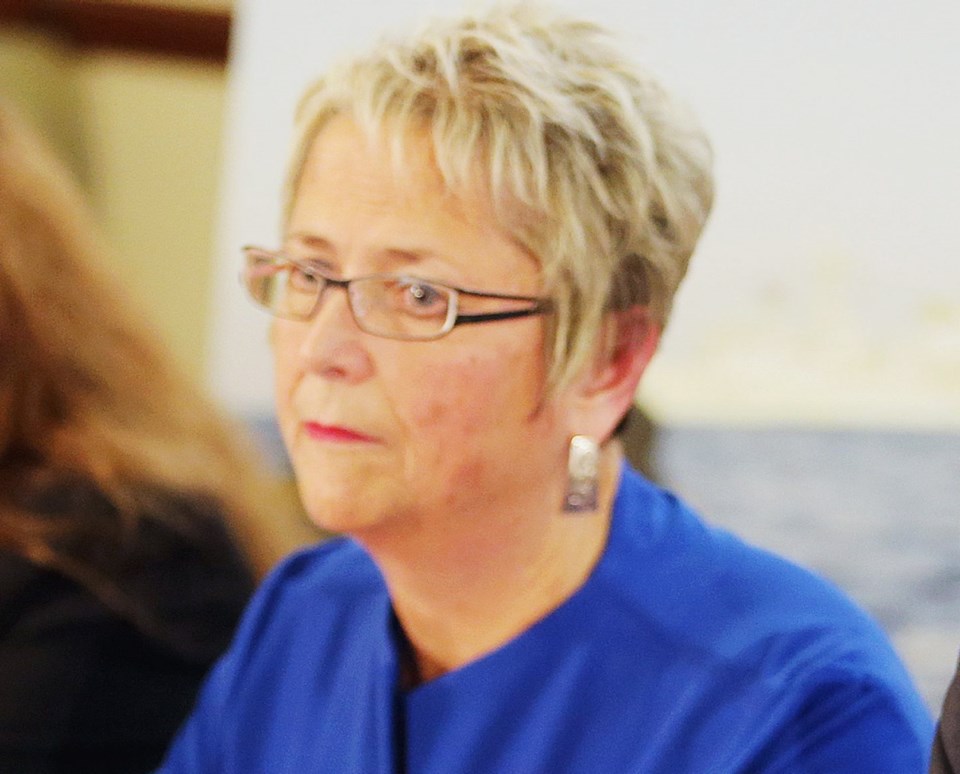The NDP wants the provincial government to follow the example set by Ontario and Quebec and ban pay-for-plasma clinics before they set up shop in B.C.
Canadian Plasma Resources, which opened a clinic in Saskatoon last year, has expressed interest in expanding to other provinces.
Barzin Bahardoust, chief executive officer, said in a telephone interview from Toronto Tuesday that the company is opening a clinic in Moncton, N.B..
“We have been thinking about establishing centres in B.C. and we’ve had meetings with the provincial governments, including the government of B.C. in the last few years,” he said.
The company’s website shows donors generally receive $25 in the form of a non-transferrable credit card or charitable tax receipt for giving plasma, the protein-rich liquid in blood.
The plasma is then used to manufacture life-saving drugs called plasma protein products.
NDP health critic Judy Darcy warned Tuesday that allowing pay-for-plasma clinics into the province would undermine Canada’s public blood system and reduce the number of voluntary donors.
She noted that the World Health Organization recommends all countries move to a 100 per cent voluntary, non-remunerated blood donation system.
“This government is going in the opposite direction,” she said.
“Unless aggressive action is taken, unless legislative action is taken, a pay-for-plasma clinic can set up any time in British Columbia. It requires a legal prohibition to stop it.”
Ontario banned the practice in 2014 in favor of the public system run by Canadian Blood Services, a not-for-profit agency that relies on unpaid donors.
“There’s simply no need for a parallel private, for-profit blood system in Canada,” Ontario Health Minister Eric Hoskins said at the time. “For-profit clinics would likely sell the plasma they collect for a profit on the international market to manufacture plasma products for pharmaceutical use. There’s no guarantee that this plasma would even come back to Ontario.”
The B.C. government shows no signs of taking a similar approach.
Health Minister Terry Lake said Tuesday that Canada already receives more than 80 per cent of its plasma protein products from paid donors in the United States.
“Without them, we wouldn’t be able to save people’s lives with these important plasma proteins,” he said.
Canadian Blood Services declined comment Tuesday, but its website says that the agency currently collects only enough plasma to meet about 17 per cent of the growing demand for immune globulins, which are used to treat immune and bleeding disorders as well as trauma and burn injuries.
The agency hopes to increase the country’s plasma sufficiency for immune globulins to 50 per cent by adding up to 40 new collection sites by 2024.
“If they can present a credible plan that means we can meet our needs for Canadian patients — 100 per cent voluntary donations — I would absolutely support that,” Lake said.
But he noted that the country is not there yet, and “without paid donations … we would not be able to meet the needs of Canadians and British Columbians — and that is our number one concern.”
Bahardoust, meanwhile, disputed the NDP’s assertion that a pay-for-plasma clinic in B.C. would lure donors away from the voluntary system.
“We don’t think there’d be any drop,” he said.
“Possibly, with having an established plasma industry, like the ones in other countries, there would probably be more awareness of the issue and we would have hopefully even more donations in our voluntary centres as well.”



